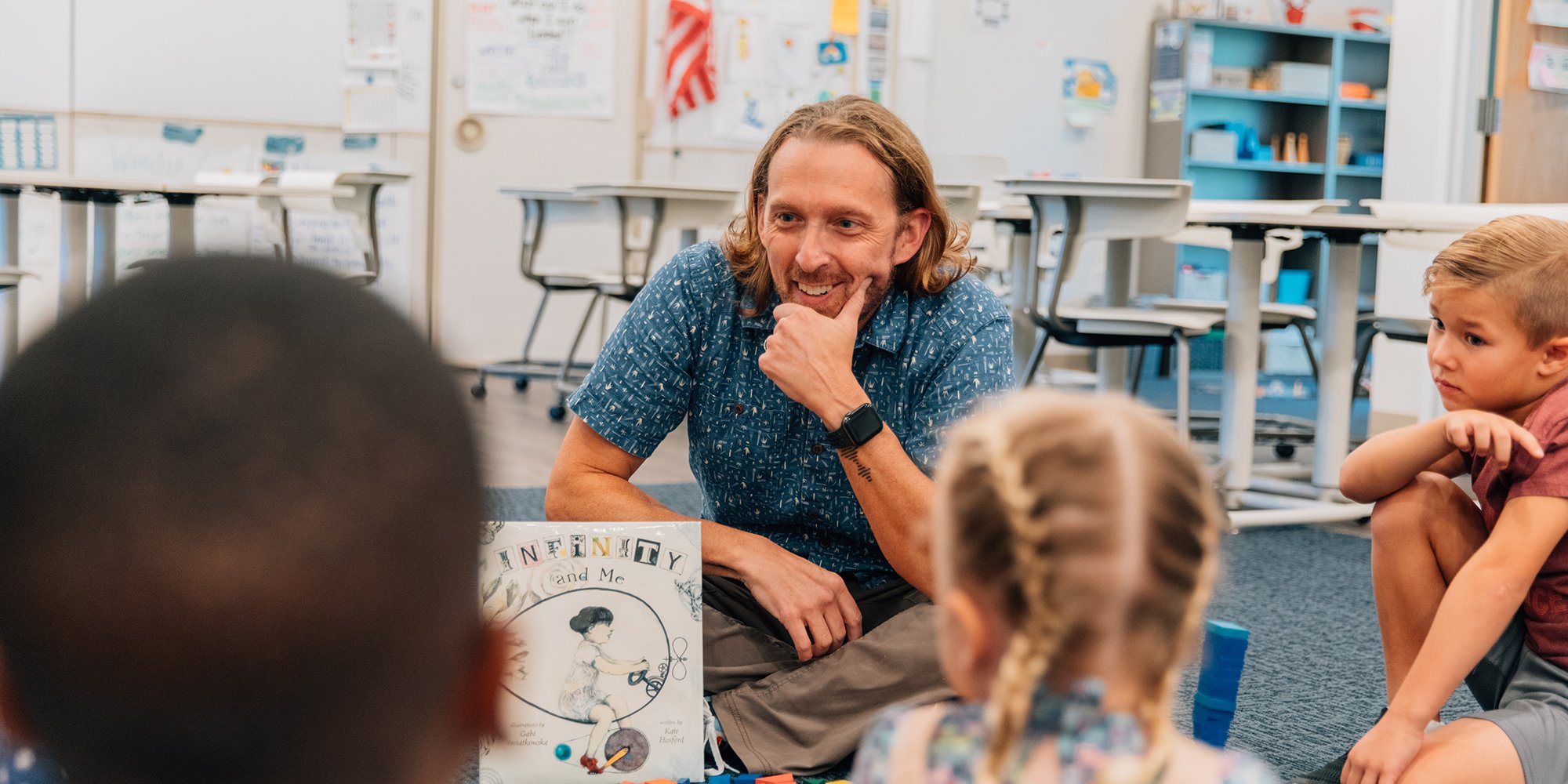Patience
Ignite sessions are tough. I always swear that I’ll never do another, but then I find myself signing up again. At NWMC and CMC-South, I gave an ignite talk about being patient. I thought it might be worth sharing the transcript that I wrote so folx (including myself) could think more deeply about these ideas. What follows is that script:
*Note: The video recording that Rob Baier so kindly took for me follows the script. “Official” Recording should be available soon.
I’m a teacher. Some days I do the work of teaching and I feel successful. I mean, I feel like I’m in the zone. Other days…Not so much. Other days, I feel like a failure. I feel like I’ve been run over by a truck. Everything falls flat.
You see, in my classroom, I make mistakes daily. Things very rarely go “as planned.” That’s the nature of working with humans.
Folx, teaching is just messy. And this work is hard.
But for me, running is one escape from that. Now, being a runner is only tangentially tied to this talk.
Because today I want to talk about patience. The patience I want to give myself as a teacher. And the patience I want to give my students.
[15 seconds of nothing]
That was 15 seconds. And for me (and likely for you) it felt like an eternity. But, this work we do as teachers is all about being patient. And that can be terrifying.
Let’s get back to running for a minute. During the pandemic, I was out running and saw this sign…
And it challenged me to consider these three ideas from a teaching perspective. I mean, in my mind, this is a three-part recipe for great teaching.
But, the one that stuck out to me the most was the idea of patience. See, one thing I know for sure is that the teaching and learning of math is a long game. Learning math takes time.
My fellow teachers. It’s not about you. Don’t let that hurt your feelings.
Administrators and coaches. It’s not about you. Don’t let that hurt your feelings.
Standards Writers. It’s not about the standard. Don’t let that hurt your feelings.
It’s about the kid. Singular.
It’s a LONG process for each and every kid in our classrooms as they progress along their mathematical journeys. And those journeys continue WAY beyond us. Spoiler alert—they keep learning math after they leave our classroom.
We can’t force learning upon any student on any given day.
We can’t continue to exist in a one standard/one concept/one-day mindset. That’s not how we learn anything—let alone math.
So. This year, I am working to trust myself that this work takes time, and so this year I’m giving myself and my students both the challenge (because it’s incredibly hard) and the gift (because it’s worth it) of patience.
When we learn things like playing sports or playing music, we do so excruciatingly slowly. We practice the movements and the positions incredibly slowly. We have to learn to do things slowly so that we can do them quickly later. The same holds true for learning math.
Additionally, I want my students to know that there is no math problem that is ever worth tears. And I want to give them the trust and autonomy to know that it’s okay to walk away from a math problem. Space is helpful. Space gives us new ideas.
This is my daughter’s writing. She’s 5. When I saw this, my response was, “WOW! I can tell exactly what you are trying to say—can we make pancakes, please? And your picture helps me understand those words!” I praised her even though it’s riddled with what we consider “mistakes.”
I did that because we trust and know that when we sit down with a young writer we are working to develop them as a writer. In writing, I trust that it’s not about the piece of writing. It’s about the writer.
And I want to do the same thing in the math classroom. I want to make sure that my students know that when I work with them, it’s not about the math problem, it’s about helping them develop as math learners.
And that takes patience. For both of us.
I want to provide wait time when I ask questions. Research suggests that there are two times we should wait when questioning students. Immediately after we ask the question and before we call on a student. And, then again after the student finishes talking. I can’t tell you how many times I cut off a student because I get excited about their idea or ideas.
This work we get to do as teachers is incredibly complex and it requires us to make countless decisions that impact our students. And, the reality for me is that many of those decisions are just not great.
So, I’m going to be patient with myself. I know I’ll continue to make decisions that I won’t be proud of. But, that’s okay. I’m going to work on trusting that the sum of the work we do throughout the year is almost always greater than any individual decision.
We show who we are over time.
So, let’s commit together. Let’s give ourselves and our students the gift of patience. We deserve it. And more importantly, they deserve it. Thank you.



